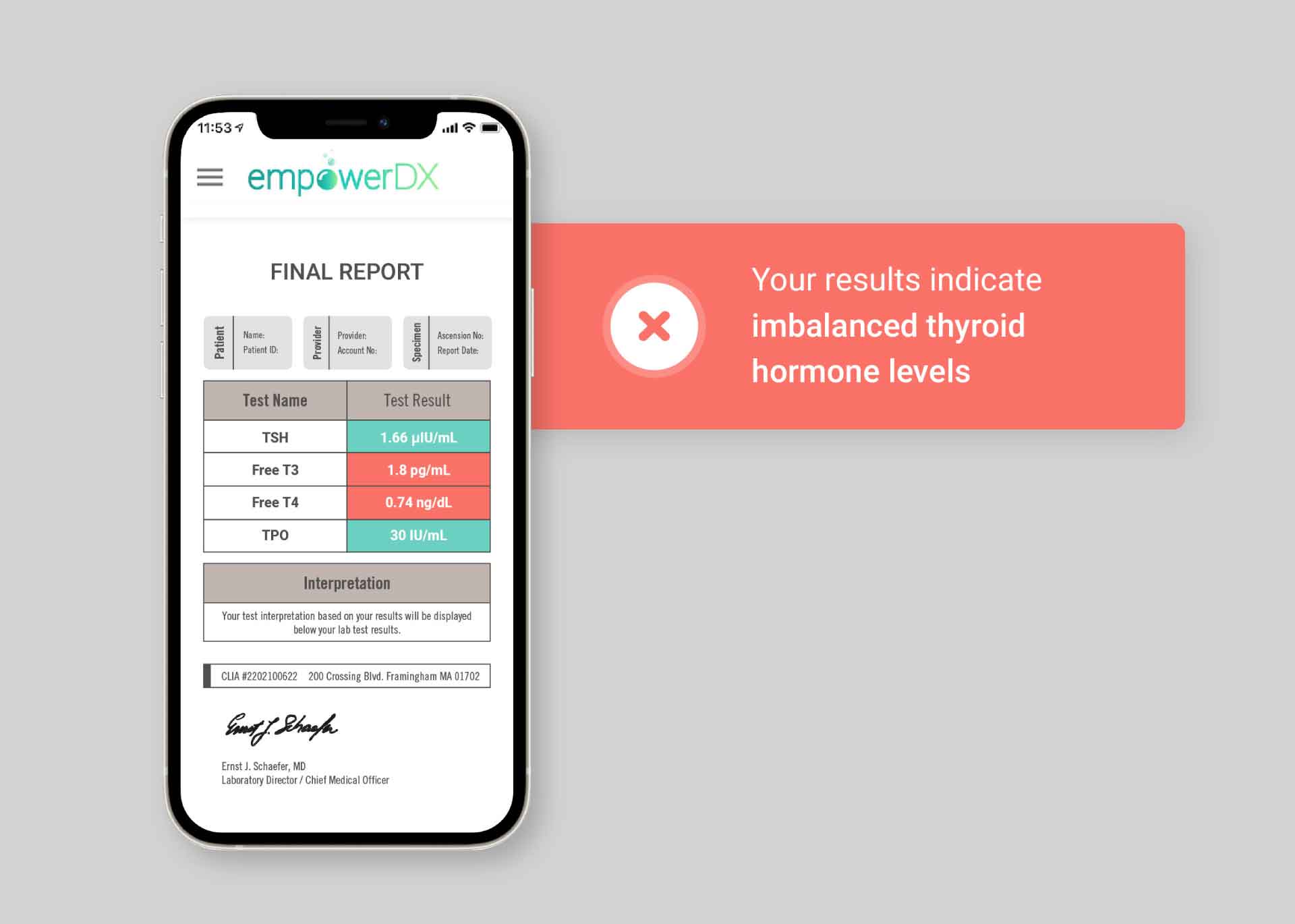It’s estimated that nearly 20 million people in the United States have some form of thyroid disorder. The exact causes of thyroid problems are different for everyone, and it’s hard to know what triggers thyroid dysfunction in the first place. However, established research has found a potential link between Hashimoto’s disease (also known as autoimmune thyroiditis) and gluten intolerance.
So how serious is this relationship between gluten and thyroid problems? Is it time to throw out all your bread? Well, maybe. But if you’re gluten intolerant or have celiac disease, it’s important to understand potential risks to your thyroid health – and more importantly, what you can do to take action.

What is your thyroid?
First, let’s take it back to basics. Your thyroid is a butterfly-shaped gland located on the lower front part of your neck, and is responsible for releasing and regulating hormones in your body. In a nutshell, these hormones help regulate your body temperature, heartbeat, and how your body uses energy. However, certain health conditions can prevent your thyroid from functioning properly - including Hashimoto’s disease.
How are Hashimoto’s disease and celiac disease related?
Both Hashimoto’s disease and celiac disease are autoimmune diseases - meaning that your immune system mistakenly attacks your own cells instead of foreign ones.
Hashimoto’s disease, or autoimmune thyroiditis, is a health condition where your immune system sends antibodies to attack your thyroid gland. If the antibodies cause enough damage to the thyroid, Hashimoto’s can lead to hypothyroidism. Hypothyroidism is a condition where your thyroid is low functioning and fails to produce enough hormone to regulate your metabolism, mood, and other processes in your body.
Celiac disease is a condition where gluten triggers the immune system to attack the small intestine, which can lead to intestinal damage. If left untreated, this disease can lead to a variety of complications, including poor absorption of nutrients, malnutrition, bone loss, and certain kinds of digestive system cancers.
Many people have sensitivity to gluten, whereby consuming gluten may increase gut permeability or “leaky gut”, and allow partially digested food, toxins, or bacteria to pass through. This may lead to health issues, though they do not have celiac disease. In some people, consuming gluten can have a negative effect on immune function.
How are Hashimoto’s disease and gluten intolerance connected?
So how are these two diseases connected? Several studies have found that people with celiac disease may be more likely to have autoimmune thyroid disorders such as Hashimoto’s disease.
In a small 2011 study of 27 adults diagnosed with celiac disease, researchers found that people with celiac disease were more likely to have thyroid disease compared to a control group, regardless of whether they were showing symptoms or not. [1] Another 2001 study of 520 individuals found that the prevalence of celiac disease was significantly higher in people with Hashimoto’s disease compared to the control group. [2]

Gluten-free diet and Hashimoto’s disease
With this established connection between thyroid problems and celiac disease, it’s worth asking whether a gluten-free diet could be used to combat the effects of Hashimoto’s disease. While there’s not yet a definite answer, emerging evidence has suggested that gluten-free diets could have a positive effect.
One 2019 study of 34 women with Hashimoto’s disease (but not celiac disease) found that women who followed a gluten-free diet for 6 months experienced reduced thyroid antibody levels, which highlights potential benefits of a gluten-free diet. [3]
Another 2001 study of 241 people with untreated celiac found that 12.9 percent had hypothyroidism, which was three times higher than the control group. [4] This same study found that in distinct cases, following a gluten-free diet for one year helped return thyroid levels to normal. While this research is considered emerging evidence, it’s very interesting to consider.

Taking action
If you’ve been diagnosed with celiac disease, it may be beneficial to check your thyroid levels as well. One 2016 meta-analysis of 13 articles concluded that individuals with celiac disease should be screened for thyroid disease, due to the higher risk of thyroid disease in this population. [5]
You don’t have to wonder if your celiac disease or gluten intolerance is connected to a potential underlying thyroid problem. Test your thyroid levels at home, and get the answers you need to better understand your health.
Sources
[1] Metso, Saara, et al. “Gluten-Free Diet and Autoimmune Thyroiditis in Patients with Celiac Disease. A Prospective Controlled Study.” Scandinavian Journal of Gastroenterology, vol. 47, no. 1, 30 Nov. 2011, pp. 43–48., doi:10.3109/00365521.2011.639084.
[2] Volta, Umberto, et al. “Coeliac Disease in Patients with Autoimmune Thyroiditis.” Digestion, vol. 64, no. 1, 2001, pp. 61–65., doi:10.1159/000048840.
[3] Krysiak, Robert, et al. “The Effect of Gluten-Free Diet on Thyroid Autoimmunity in Drug-Naïve Women with Hashimoto's Thyroiditis: A Pilot Study.” Experimental and Clinical Endocrinology & Diabetes, vol. 127, no. 07, 30 July 2018, pp. 417–422., doi:10.1055/a-0653-7108.
[4] Sategna-Guidetti, C., et al. “Prevalence of Thyroid Disorders in Untreated Adult Celiac Disease Patients and Effect of Gluten Withdrawal: An Italian Multicenter Study.” The American Journal of Gastroenterology, vol. 96, no. 3, Mar. 2001, pp. 751–757., doi:10.1111/j.1572-0241.2001.03617.x.
[5] Sun, Xin, et al. “Increased Incidence of Thyroid Disease in Patients with Celiac Disease: A Systematic Review and Meta-Analysis.” PLOS ONE, vol. 11, no. 12, 28 Dec. 2016, doi:10.1371/journal.pone.0168708.


